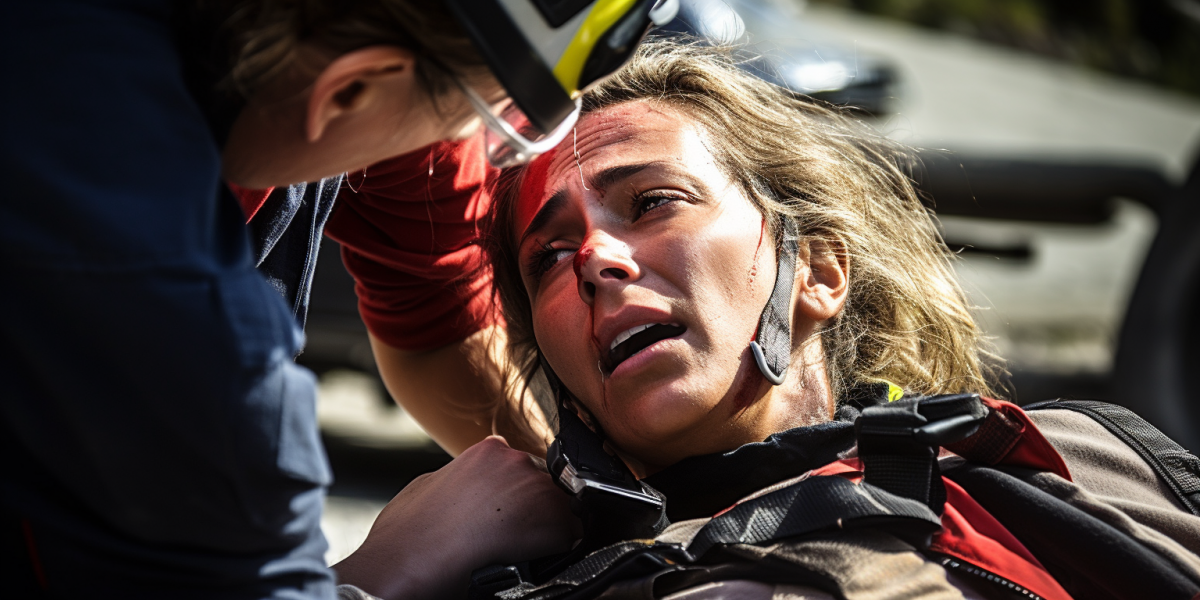When an injury occurs, it can be a stressful and overwhelming experience. Whether it’s a minor cut or a more severe injury, it’s important to know what steps to take to ensure proper care and recovery. The first and most important step is to seek medical attention immediately. If the injury is severe or life-threatening, call 911 or go to the nearest emergency room.
It’s important to keep in mind that when an injury occurs, the body releases adrenaline which can mask symptoms and make it difficult to determine the severity of the injury. It’s important to stay calm and avoid moving the injured area until medical professionals arrive. In some cases, it may be necessary to immobilize the injured area to prevent further damage.
If the injury is not severe enough to require emergency medical attention, it’s still important to seek medical care as soon as possible. Even minor injuries can have long-term effects if not properly treated. It’s important to monitor symptoms such as pain, swelling, and limited mobility and seek medical attention if they persist or worsen.
Immediate Steps After an Injury
When an injury occurs, it is important to take immediate action to ensure the best possible outcome. The following steps should be taken to ensure that the injured party receives the appropriate medical care and that any legal issues are addressed:
Assessing the Situation
The first step after an injury is to assess the situation. The injured party should take a moment to evaluate their surroundings and determine if they are in immediate danger. If they are in a safe location, they should remain there until help arrives.
Reporting the Incident
The next step is to report the incident. If the injury occurred at work or in a public place, it should be reported to the appropriate authority. If the injury occurred in a car accident, the police should be notified. It is important to provide accurate and detailed information when reporting the incident.
Gathering Evidence
If possible, evidence should be gathered at the scene of the incident. This may include photographs of the scene, the injuries sustained, and any damage to property. Witness statements should also be obtained, if possible.
Seeking Medical Help
The injured party should seek medical attention as soon as possible. Even if the injury seems minor, it is important to have it evaluated by a medical professional. Adrenaline can mask symptoms, and some injuries may not become apparent until later.
It is important to keep records of any medical treatment received, including doctor’s notes, medical bills, and medical records. This information may be needed if the injured party decides to file an insurance claim or pursue legal action.
Overall, taking immediate action after an injury can help ensure the best possible outcome. By assessing the situation, reporting the incident, gathering evidence, and seeking medical help, the injured party can take the necessary steps to recover and protect their rights.
Navigating Legal and Insurance Processes
When someone is injured, it can be overwhelming to navigate the legal and insurance processes. However, it’s important to understand these processes in order to receive fair compensation for damages and suffering. This section will cover some key aspects of navigating legal and insurance processes, including understanding insurance, considering legal representation, and filing claims and lawsuits.
Understanding Your Insurance
It’s important to understand your insurance coverage, including policy limits and any uninsured or underinsured motorist coverage. This can help you determine what compensation you may be eligible for and what legal options you have. Insurance companies may try to offer a settlement that is lower than what you are entitled to, so it’s important to have a clear understanding of your coverage and rights. Sometimes it can be hard to decipher what will be covered or what you’ll be entitled to. When this happens, reach out to Chicago Personal Injury Lawyers for help in understanding your compensation rights.
Considering Legal Representation
In some cases, it may be necessary to hire a personal injury lawyer to represent you and help you navigate the legal process. A personal injury lawyer can help you understand your legal options and negotiate with insurance companies to ensure you receive fair compensation. They can also help you file a lawsuit if necessary.
Filing Claims and Lawsuits
When filing a claim or lawsuit, it’s important to have all necessary documentation, including medical records, police reports, and any other evidence of negligence or fault. It’s also important to understand the claims process and any deadlines for filing. A personal injury attorney can help you with these steps and ensure that you receive fair compensation.
Published by: Aly Cinco



















